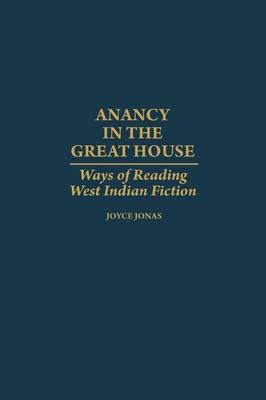This volume offers an interdisciplinary approach to six examples of West Indian fiction, combining symbolic anthropology with traditional literary criticism. Focusing on works by George Lamming and Wilson Harris, two vastly dissimilar Caribbean writers, Joyce Jonas identifies an emerging West Indian aesthetic, stressing the conflict between oral and written communication, and between folk culture and imperialist domination. By applying post-modernist literary theories to the texts, Dr. Jonas explores colonization as a key metaphor for exploitation of gender, class, race, and environment.
The six novels surveyed all describe a plantation landscape within which the action takes place, and which provides a context for a study of the polarized world of colonizer and colonized. Two icons are employed in the analysis: the Great House, a colonial world view of binary oppositions, and Anancy, a trickster-figure of West Indian folklore. The first of the three essays focuses on the collision between imperialist culture and the submerged folk heritage. The second explores the phenomenon of exile through the artist-in-the-text, a feature common to all six novels that places the artist at the crossroads of a colonized world. Finally, the third essay blends the anthropological concept of liminality with a feminist perspective, widening the discussion to embrace all types of oppressive exploitation. With its subtle literary readings and its philosophical commentary, this volume will be a significant resource for courses in West Indian and Third World literature, literature and culture, and race and gender in literature. It will also be an important addition to academic and public libraries.
- ISBN10 0313273448
- ISBN13 9780313273445
- Publish Date 24 August 1990
- Publish Status Active
- Publish Country US
- Publisher ABC-CLIO
- Imprint Praeger Publishers Inc
- Format Hardcover
- Pages 168
- Language English
